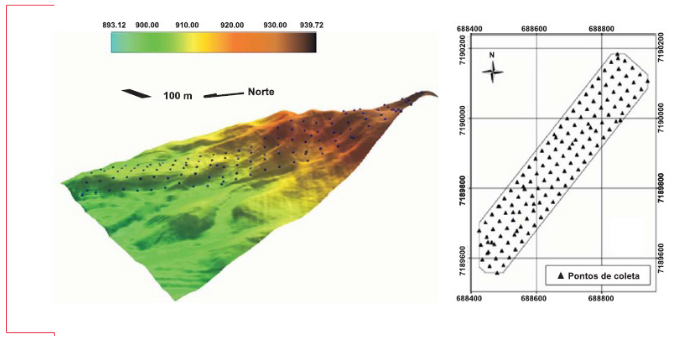The CSME group (Soil Characterization for Specific Management, UNESP/FCAV) has proposed new approaches to map and characterize the soils in areas with growing coffee, oranges and sugar-cane in the northeast region of São Paulo and the northwestern region of Minas Gerais. Were associated classical or deterministic methods (including conceptual models of soil-landscape, which dominate pedons similar) with stochastic methods such as geostatistics (using systematic sampling transects, and meshes). These techniques allow the variability of physical, chemical and mineralogical soil attributes can be mapped in a geographic space continuous. The identification of areas with different patterns of variability of soil attributes allows you to establish limits of accuracy between the specific management areas. Thus, agricultural practices such as soil sampling, application of inputs, soil and water management and conservation, inventory of CO2 emissions, among others, become more, inventory of CO2 emissions, among others, become more efficient. The knowledge generated by the group has character inter-departmental and inter-institutional. It's intense participation of the research group in congress and projects approved by CNPq, CAPES, FAPESP and FINEP, as well as participation in conferences and publication of scientific articles in national and international magazines. The group also operates in the extension area, developing partnerships with several companies in the sugarcane industry, Citric, coffee and others, besides promoting the exchange of students and teachers from universities in other states and countries. The aim is to create more accurate models of the behavior of agricultural environments, giving subsidy to sustainable land management and the transfer of information.
Objective
The aim is to create more accurate models of the behavior of agricultural environments, giving subsidy to sustainable land management and the transfer of information.
